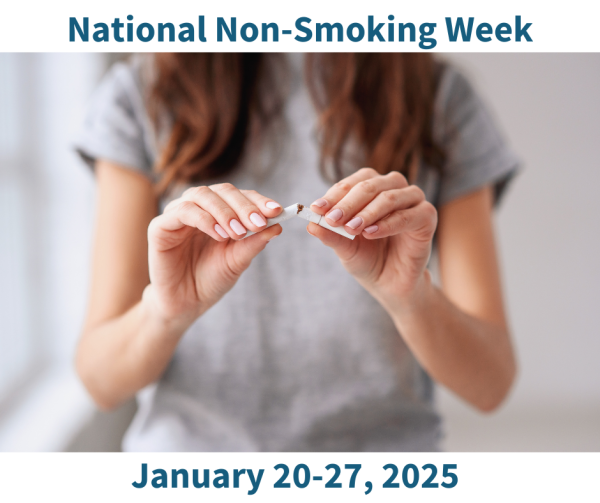National Non-Smoking Week, January 20-27, is a time to reflect on the progress we’ve made

National Non-Smoking Week, January 20-27, 2025, is a time to reflect on the progress we’ve made in reducing tobacco use and renew our commitment to creating a healthier, smoke-free future for all Canadians.
Over the last 25 years, significant progress has been made in Nova Scotia and across Canada in lowering tobacco use. This success is the result of continuous efforts from governments, health authorities and communities working together. We’ve implemented policies that protect public spaces from tobacco smoke, limited tobacco advertising and sales and introduced measures like pricing and taxation to discourage tobacco use. These actions, along with efforts to reduce youth access to flavoured products, support for smoking cessation programs and litigation against the tobacco industry have contributed to significant reductions in smoking rates.
However, tobacco use remains one of the leading preventable causes of death and disability in Canada. Ongoing efforts are critical, particularly as the tobacco and vaping industries continue to target populations with higher smoking rates and pose new health risks, especially to youth.
At Nova Scotia Health, our Smoke and Tobacco Reduction Policy, is a clear example of our leadership in protecting patients, families and healthcare workers. This policy ensures that all NSH facilities are smoke-free, emphasizing the importance of maintaining smoke-free environments for everyone in our province.
Looking ahead, there’s more to be done. As tobacco use changes, our strategies are evolving too. New products, such as e-cigarettes and vaping devices, are becoming more common and create new challenges. These should be carefully assessed not in a way to grow the tobacco industry, but for their potential to help prevent and reduce tobacco use.
As part of our ongoing commitment to prevention, some provinces are considering raising the minimum age for purchasing tobacco and vaping products to 21. Additionally, there are calls for stricter regulations on where tobacco products can be sold, especially near schools and youth-focused spaces.
By continuing to strengthen smoking cessation services and expand prevention efforts, we can work together to ensure that future Nova Scotians grow up in a healthier, smoke-free environment.
For more information about National Non-Smoking Week, please visit: